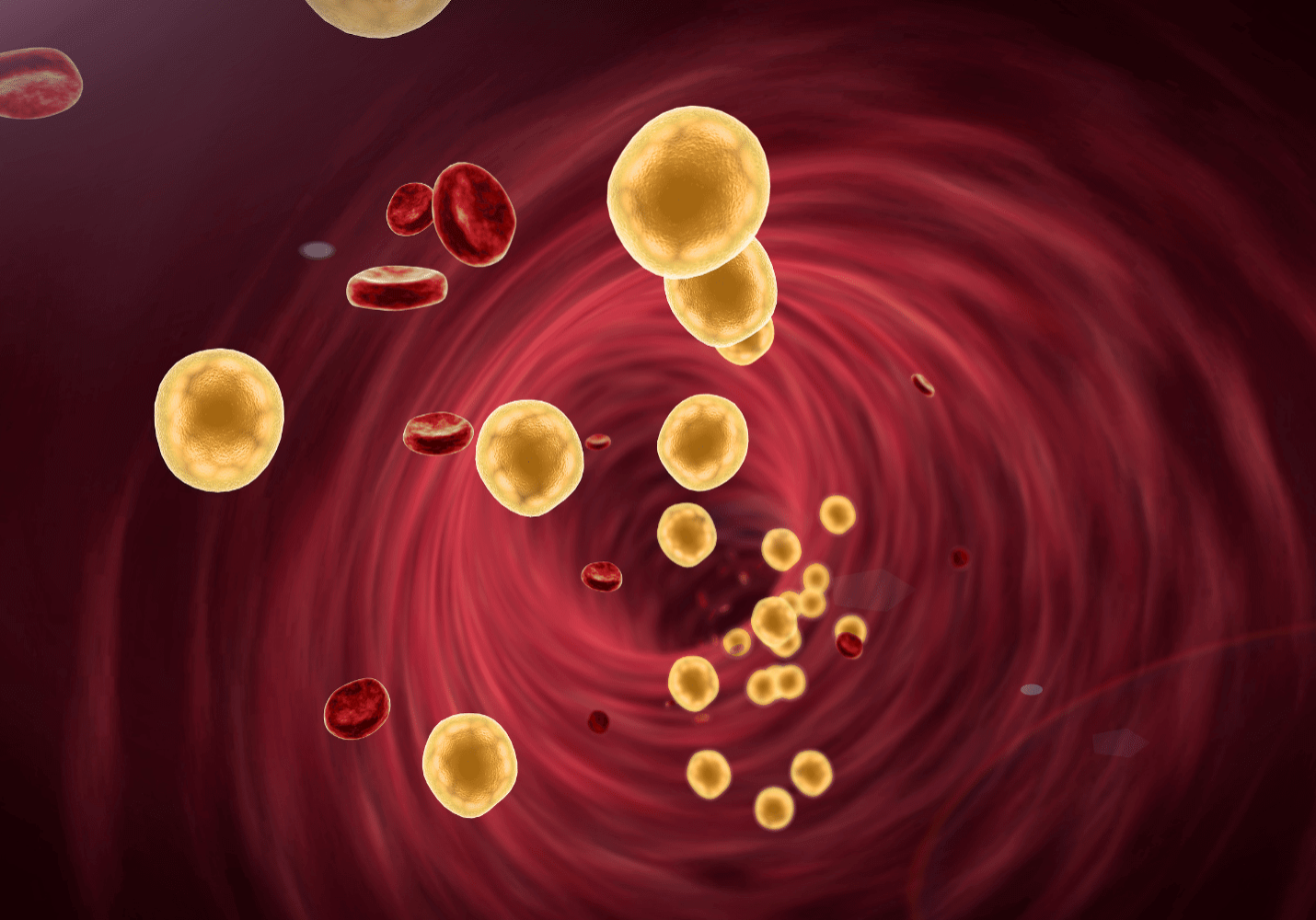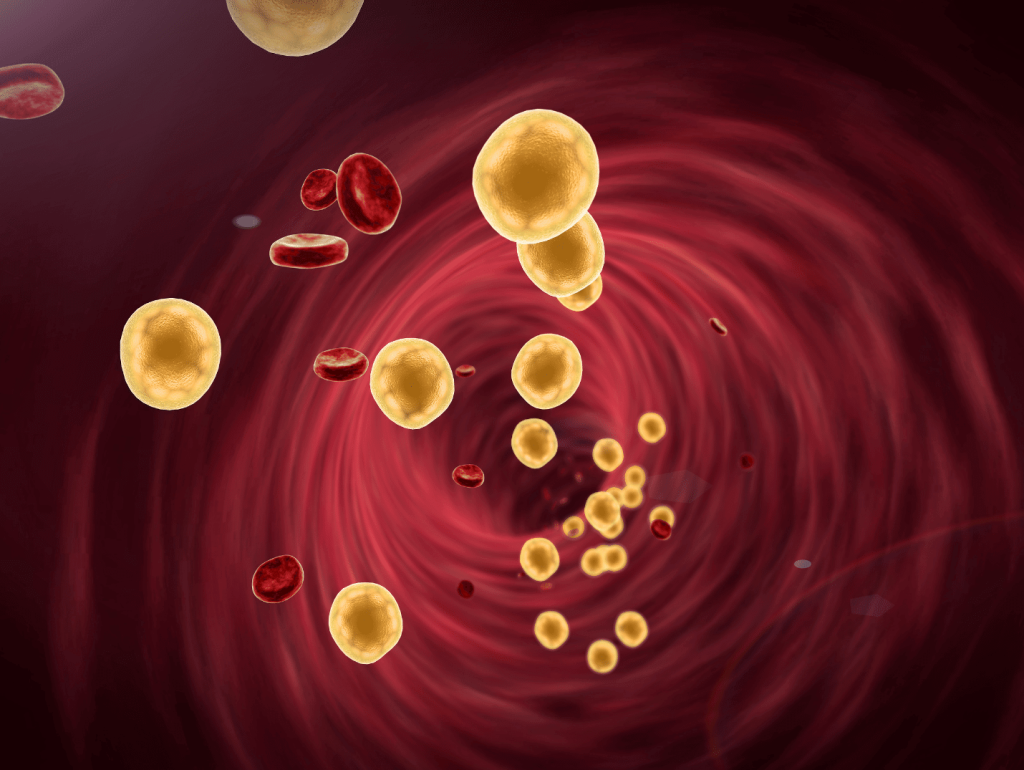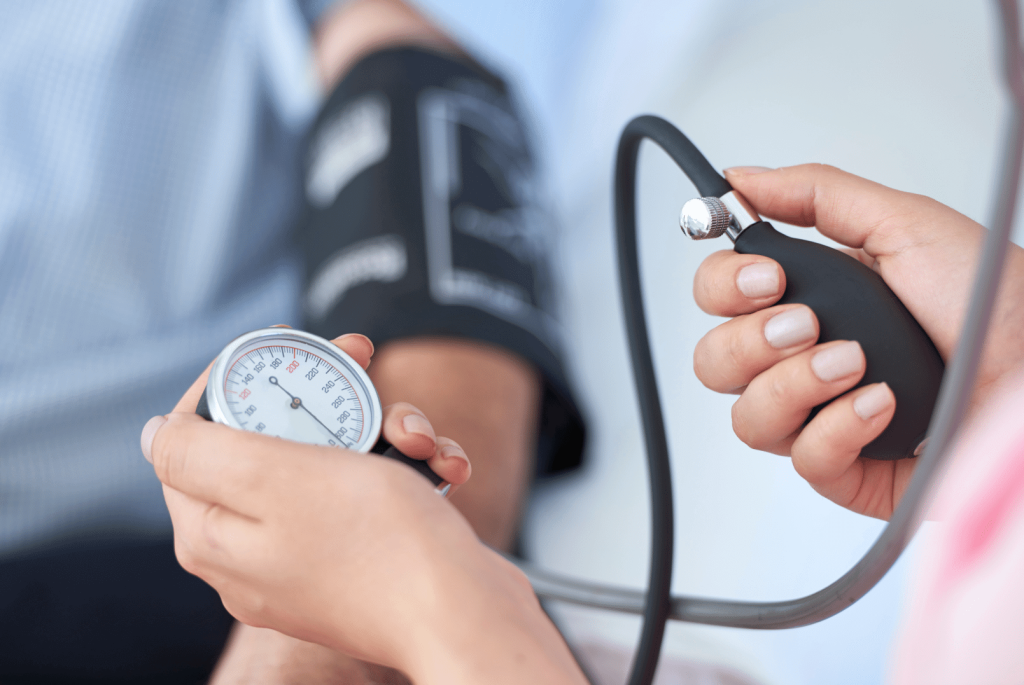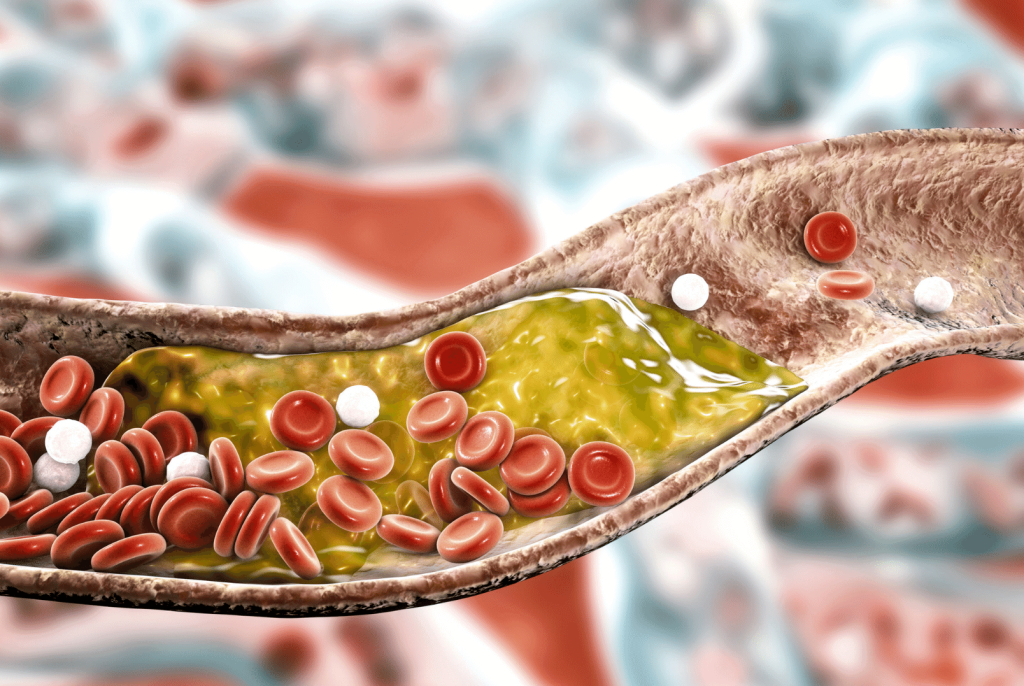Surprising Causes of High Cholesterol, Genetics, Lifestyle, Nutrients, and More

When it comes to heart health and blood tests, not a day goes by without mention of high cholesterol. For decades, cholesterol has been labeled one of the most prominent risk factors for heart disease risk.

Many individuals have been scared into medication use by their doctors simply because they have what is deemed to be “high” cholesterol. With a rise in functional health information, we have a greater understanding of how cholesterol and heart disease risk are related.
Often there is a combination of factors leading to high cholesterol numbers that aren’t necessarily associated with increased heart disease risk.
Here we’ll explore some of the surprising causes of high cholesterol that might be factors for you. We’ll also look at what you can do about it and what situations might call for deeper investigation. From there you’ll better understand your own situation and learn to make informed choices going forward to truly BIOptimize your life!
The Roles of Cholesterol in the Body

Cholesterol is an essential and protective substance that the liver and intestines produce on their own outside of dietary consumption. This internal production is essential as all cells depend on cholesterol for their regular function and maintenance.
Some of the areas where cholesterol plays a primary role in maintaining healthy function include but are not limited to:
- Hormone synthesis, particularly sex hormones like testosterone and estrogen.
- Systemic inflammation control and injury repair.
- Nutrient absorption and tissue growth/maintenance.
- Protecting and regenerating the fatty insulation layer on nerves known as myelin.
Impaired cholesterol metabolism is a contributor to the development of nonalcoholic fatty liver disease as well as heart disease. The creation of bile acids is one of the main ways your body breaks down cholesterol and eliminates it from your body.
Bile is the yellow-orange substance produced by the liver to assist fat digestion and alkalinizing stomach contents in the intestines. If the liver isn’t effectively creating bile, cholesterol won’t be broken down and can become elevated.
What Does It Mean When Cholesterol Is High?
If cholesterol is “high” on a blood test, it usually means one of two things… either the value for total cholesterol (TC) is elevated, or that LDL (low-density lipoprotein and so-called “bad cholesterol”) is elevated. In both cases, it’s not always cause for concern and can be regulated quite simply.
This is essential knowledge as without it, people start on medication to lower cholesterol without ever discovering the root cause.
Many statin medications can have serious and long-term side effects, so starting them is not a decision to be taken lightly. And if you could use supplements and lifestyle changes instead to get similar benefits as medication, wouldn’t that be important information?
Lifestyle factors that can increase cholesterol:
1. Stress
2. Sedentary lifestyle
3. Unfiltered coffee
4. Leaky gut and high saturated fat diets
5. Some medications
6. Hypothyroidism
7. Poor blood sugar control
8. Hormonal issues like menopause and low testosterone
9. Liver or kidney issues
10. Pregnancy
Looking deeper at some of these factors will show how high cholesterol is often correlated, not causative of cardiovascular disease.
Stress
In a study on 52 male medical students, cholesterol levels were tracked at 3 points throughout their schooling. These points were admissions testing, a final exam, and during a period of regular academic work once admitted. At points 1 and 2, the most subjectively stressful, there was a significant increase in average cholesterol levels. The researchers concluded in support of the hypothesis that cholesterol levels rise when we are under stress.
If someone were to take a blood test at a particularly stressful time in life, this could significantly influence the outcome. In the absence of other factors that cause cholesterol to build up in the arteries, this could misrepresent their associated risk. Keep this in mind if you’ve taken a blood test while significantly stressed and the cholesterol numbers came back elevated.
Sedentary Lifestyle

Keeping fit and active is an essential part of a healthy lifestyle and that holds true for managing cholesterol levels. Moderate cardio exercise can clearly raise HDL, which in theory could help offset the risk of higher LDL and triglycerides.
Researchers reviewing this topic suggest moderate-intensity aerobic exercise and low-intensity resistance training 5 days/week for 30 minutes minimum.
In order to actually lower LDL, more intense cardio plus moderate to high-intensity resistance training is what is recommended. All of this is good news because it means there are safe and free things you can do strictly from a lifestyle perspective to potentially improve your numbers.
So if you have higher cholesterol numbers and want to do something about it, general fitness improvements could be a start.
Unfiltered Coffee
Learning that simply having unfiltered vs. filtered coffee can cause a change in cholesterol levels might sound confusing. How could something so seemingly simple make a real difference? Well, the difference comes from a couple of very particular compounds present in coffee.
Cafestol and kahweol are chemicals known as diterpenes that are present in coffee and increase cholesterol levels. They are present in Turkish or French press-style coffee due to the lack of paper filter. Together they drive the cholesterol-raising effect by reducing cholesterol transport protein activity in circulation.
So if you have high cholesterol or are trying to lower your numbers, using paper-filtered methods may prove useful. Also, if you have a predisposition towards heart disease, using paper filters, again, could be a smart move.
And if you’re like me and coffee inevitably stresses out your system, consider yourself lucky and simply skip the daily java entirely.
Hypothyroidism
Thyroid hormones including TSH have been shown to contribute to high cholesterol and, potentially, cardio-metabolic disease development. Even HDL becomes elevated and dysfunctional in the context of impaired thyroid function.
Mild to moderate hypothyroidism is a common thing many folks experience whereas severe hypothyroidism is less common. Still, we need to be aware that impaired thyroid hormone metabolism can indeed increase cholesterol numbers.
Common symptoms of hypothyroidism include but are not limited to:
- Fatigue
- Reduced core body temperature
- Reduced tolerance of cold
- Constipation
- Unexplained weight gain, especially around the midsection
- Muscle weakness, aches, and stiffness
- Memory challenges or brain fog
- Reduced resting heart rate
- Depression
If these symptoms are persistent alongside high cholesterol numbers, then seeking treatment to normalize thyroid function may improve those numbers. At the very least it will help you feel better and it could lower heart disease risk significantly over time.
Poor Blood Sugar Control
Controlling blood sugar is one of the essential elements to improve metabolic health and reduce a broad spectrum of disease risks. This is also true with cholesterol because chronically elevated sugar levels can cause inflammation which requires cholesterol to help repair.
Cholesterol is a healing molecule so it will be elevated where there is high inflammation or injury.
Multiple meta-analyses show that a diet that improves blood sugar control also improves total cholesterol and HDL. Researchers used a Mediterranean diet, which is generally anti-inflammatory and high in fiber and polyphenols which benefit blood sugar.
Thus they show that the same diet that improves blood sugar in those with diabetes also improves cholesterol markers.
Improving sugar control and cholesterol markers with simple dietary interventions demonstrates how much control we have to prevent these issues. It also explains why you might have high cholesterol numbers if your blood sugar isn’t kept in a healthy range. Addressing factors causing that fluctuation of sugar is absolutely essential for creating a vital and disease-free life.
Low Testosterone (in Men)
Testosterone is mostly known for promoting muscle and strength development and unfortunately today, many have low levels of this essential hormone. There also appears to be a direct correlation between increasing testosterone and decreasing cholesterol as evidenced by the following study.
788 men 65 years of age or older who had average testosterone levels less than 275 ng/dL were observed. Some received testosterone via gel at a body-weight-adjusted dose to maintain healthy levels of a young man.
The others received a placebo gel and this went on for 12 months. The testosterone treatment compared against the placebo significantly decreased total cholesterol, HDL, and LDL from baseline to month 12.
Though not conclusive, this does give us a solid direction to further explore why low testosterone would cause elevated cholesterol. Perhaps it’s because stronger, denser muscles and a healthier brain supported by higher testosterone simply use more cholesterol to maintain function? Or that men with lower testosterone tend to also be metabolically unhealthy?
Whatever the mechanism, there is a clear and direct correlation between having healthy, higher testosterone and lower, in-range cholesterol numbers.
High Cholesterol and Correlations with Cardiovascular Health

Cardiovascular risk factors are many and varied and go far beyond simple cholesterol numbers. Cholesterol doesn’t itself cause heart disease, yet high cholesterol correlates with many situations that are linked to higher heart disease risk. It’s important to know these so we can better understand and minimize that risk.
Some of the situations that are linked to higher heart disease risk and which may correlate to higher cholesterol are as follows:
- Diabetes
- Poor cardio-respiratory fitness
- Chronic low-grade infection
- Chronic inflammation
- Magnesium and other nutrient deficiency
Though not a complete list, all of the above are associated with both increased cholesterol and heart disease risk. Again helping to demonstrate the interconnected nature of cholesterol and disease risk.
Of particular note is magnesium deficiency which has been studied to be directly associated with poor heart health. In a randomized controlled trial of 430 individuals aged 25-63, group A ate a diet containing roughly 920-1360 mg magnesium/day. While group B consumed an average of 320-550 mg per day and 3 months later the results were obvious.
Group A significantly lowered their total cholesterol, LDL, and triglycerides with a slight (2%) increase in HDL. There were no similar changes in group B while they showed a slight decrease in HDL. Those in group A who were magnesium deficient at the start of the study had the greatest average increase in HDL at 10.9%.
How Genetics Play a Role
There are certain genes which impact our levels of cholesterol as well as heart disease risk and this field of study is called nutrigenomics. Remember that these genes are not determining factors for developing any kind of disease, they are just contributors in certain scenarios.
You are never doomed by your genetics so don’t stress if you have so-called “bad” cholesterol genes for example.
Explored in greater depth in the upcoming Ultimate Nutrition Bible, below are excerpts of a few notable heart and/or cholesterol-influencing genes.
PON1 is very important for detoxing many pesticides, drugs, and oxidized fats. The PON1 enzyme is also part of HDL (good cholesterol) particles, and one of the reasons having high HDL is typically indicative of a healthy heart. Low-grade inflammation and omega-6 intake can inhibit PON1.
PPAR-𝝰 mainly influences fatty acid metabolism. Activating PPAR-𝝰 lowers blood lipid levels, while increasing good cholesterol (HDL).
PPAR-𝜷 helps with fat burning in muscles and the heart. It also controls blood glucose and cholesterol levels. Strong PPAR-𝜷 is linked to endurance.
APOC3 controls triglyceride levels as well as LDL cholesterol, which is the more dangerous type. Saturated fats in the diet are the modulating factor of how strongly a role this gene plays.
Those with the CC variant of this gene have a significantly increased risk of atherosclerosis and elevated blood lipid levels when saturated fats are present in the diet. Those with the GG and GC variants do not share this increased risk.
Diet and Lifestyle Factors that Lower Cholesterol

There are many things you can do to directly lower LDL cholesterol and increase HDL through diet and lifestyle alone. Things such as:
- Regular moderate to high-intensity exercise
- Consuming a diet that is appropriate for your genes and metabolism
- Limiting intake of trans fats and oxidized oils
- Ensure adequate B vitamin intake, especially Niacin a.k.a B3
- Supplementing with red yeast rice
- Ensuring adequate quality sleep
- Avoiding exposure to pesticides, heavy metals, and other toxins or poisons that can cause injury to your blood vessels or burden your liver
- Limit alcohol intake
- Avoid smoking
- Consume mono and polyunsaturated fats regularly from food and cold-pressed oils
Bringing it All Together
As we’ve seen, there are many surprising causes and contributors to high cholesterol. And, although cholesterol doesn’t cause heart disease, there are situations in which the two are correlated.
Ultimately the important thing is knowing your numbers and personal risk factors and designing a lifestyle/diet that supports your goals. Whether that is to lower your cholesterol naturally, raise your HDL, or address other factors like inflammation and hormones.
Creating your strong and vital life isn’t about deprivation or avoiding all of your favorite foods/activities in pursuit of “perfect”. It’s about knowing what to enjoy in moderation, what genetic factors you have at play, and how to interpret basic blood work.
When you have these things clear in your mind you are empowered to manage your test results and risk factors without fear or unnecessary prescription medications.
Ultimately, there is much more to heart health and disease risk than cholesterol alone. When navigating these things it’s best to work with a functional medicine or nutrition practitioner if you need personalized guidance.
Someone who can help you contextualize your blood test results, family history, genetic predispositions, and personal goals/challenges. If you do that, you’ll rest assured knowing that you’re focused on the things you can control and doing great!
- Wang Y, Ding WX, Li T. Cholesterol and bile acid-mediated regulation of autophagy in fatty liver diseases and atherosclerosis. Biochim Biophys Acta Mol Cell Biol Lipids. 2018;1863(7):726-733. doi:10.1016/j.bbalip.2018.04.005
- Thomas CB, Murphy EA. Further studies on cholesterol levels in the Johns Hopkins medical students: The effect of stress at examinations. J Chronic Dis. 1958;8(6):661-668. doi:10.1016/0021-9681(58)90121-8
- Mann S, Beedie C, Jimenez A. Differential effects of aerobic exercise, resistance training and combined exercise modalities on cholesterol and the lipid profile: Review, synthesis and recommendations. Sports Med. 2014;44(2):211-221. doi:10.1007/s40279-013-0110-5
- van Tol A. The cholesterol-raising diterpenes from coffee beans increase serum lipid transfer protein activity levels in humans. Atherosclerosis. 1997;132(2):251-254. doi:10.1016/s0021-9150(97)00099-3
- Su X, Peng H, Chen X, Wu X, Wang B. Hyperlipidemia and hypothyroidism. Clin Chim Acta. 2022;527:61-70. doi:10.1016/j.cca.2022.01.006
- Esposito K, Maiorino MI, Bellastella G, Chiodini P, Panagiotakos D, Giugliano D. A journey into a Mediterranean diet and type 2 diabetes: a systematic review with meta-analyses. BMJ Open. 2015;5(8):e008222. doi:10.1136/bmjopen-2015-008222
- Mohler ER III, Ellenberg SS, Lewis CE, et al. The effect of testosterone on cardiovascular biomarkers in the Testosterone Trials. J Clin Endocrinol Metab. 2018;103(2):681-688. doi:10.1210/jc.2017-02243
- Rosique-Esteban N, Guasch-Ferré M, Hernández-Alonso P, Salas-Salvadó J. Dietary magnesium and cardiovascular disease: A review with emphasis in epidemiological studies. Nutrients. 2018;10(2):168. doi:10.3390/nu10020168
- Singh RB, Rastogi SS, Sharma VK, Saharia RB, Kulshretha SK. Can dietary magnesium modulate lipoprotein metabolism? Magnesium and Trace Elements. 1990;9(5):255-264.
- AE, Ani M, Pourfarzam M, Naderi GA. Associations between high density lipoprotein mean particle size and serum paraoxonase-1 activity. Journal of Research in Medical Sciences : The Official Journal of Isfahan University of Medical Sciences. 2012;17(11):1020.
- Rasic-Milutinovic Z, Popovic T, Perunicic-Pekovic G, Arsic A, Borozan S, Glibetic M. Lower serum paraoxonase-1 activity is related to linoleic and docosahexanoic fatty acids in type 2 diabetic patients. Arch Med Res. 2012;43(1):75-82. doi:10.1016/j.arcmed.2011.12.008
- van Raalte DH, Li M, Pritchard PH, Wasan KM. Peroxisome proliferator-activated receptor (PPAR)- : A pharmacological target with a promising future. Pharm Res. 2004;21(9):1531-1538. doi:10.1023/b:pham.0000041444.06122.8d
- Ahmetov II, Fedotovskaya ON. Current Progress in Sports Genomics. In: Makowski GS, ed. Advances in Clinical Chemistry. Vol 70. Elsevier; 2015:247-314.
- Malalla ZH, Al-Serri AE, AlAskar HM, Al-Kandari WY, Al-Bustan SA. Sequence analysis and variant identification at the APOC3 gene locus indicates association of rs5218 with BMI in a sample of Kuwaiti’s. Lipids Health Dis. 2019;18(1). doi:10.1186/s12944-019-1165-6
- Hassan M. APOC3: Triglycerides do matter. Glob Cardiol Sci Pract. 2014;2014(3):38. doi:10.5339/gcsp.2014.38
1 Comments
Leave a Comment
You must be logged in to post a comment.





This was very helpful! Thank you!
Only thing I would add is women in menopause need testosterone as well as men. A woman actually has HIGHER testosterone levels than estrogen before hitting menopause. I think this lack of testosterone has a lot to heart disease in older women.